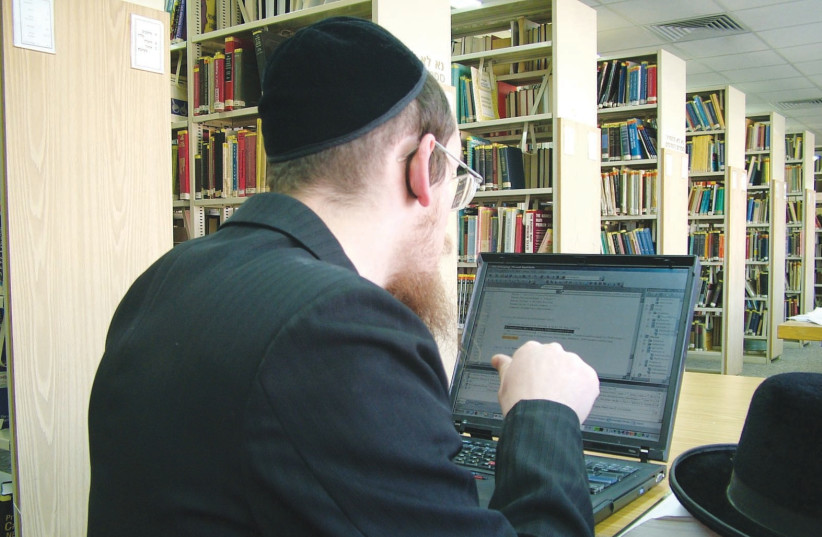This website uses cookies to ensure you get the best experience on our website. privacy policy and terms of use.
September 2023

In statistical analysis, it is often believed that numbers and data provide unequivocal truth. However, the relationship between haredi employment rates and public opinion in Israel illustrates a more complex scenario.During periods of stagnation in the employment rates of haredi men, many journalists, commentators, and public figures readily accepted the data at face value.
Yet, as the tide turns, with the employment rate among haredi men rising alongside a sharp increase in haredi academic degree recipients, the numbers no longer align with certain narratives that are critical of the haredi community. As a result, these figures are disregarded or denied.
The adage “you can’t argue with numbers” presumes that empirical evidence is compelling. This assumption is increasingly challenged by those who selectively utilize or dismiss data to bolster preexisting arguments and agendas. The recent report by the Council for Higher Education, detailing a 25% rise in haredi undergraduate students nationwide and a 45% increase in advanced degrees, adds further complexity to the dialogue.
Moreover, the Central Bureau of Statistics reports an all-time high in employment among haredi men at 55.8% – surpassing last quarter’s record-breaking 55%. These statistics should be cause for celebration, yet reactions remain polarized.
Some individuals are unmoved by this data. The same metrics that were once embraced are now rejected or ignored. Responses range from outright denial to shifting the discourse toward military recruitment or the importance of STEM (science, technology, engineering, mathematics) education.
Certain arguments contend that haredi engagement with academia and employment is merely a reactive necessity, not an active choice or the product of dedicated efforts by the state, academic institutions, or other organizations. These arguments often extend the discussion into topics such as gender-separated studies and STEM requirements, reflecting an overly simplistic approach to the complexities of haredi society.
My extensive personal experience in promoting haredi integration into academia and employment tells a more nuanced story, where coercive measures imposed on the haredi community tend to foster isolation rather than constructive engagement.
Moreover, the contentious battle over gender-separated education has resulted in judicial recognition of its importance, and indeed the vast majority of haredim enrolled in higher education study in such frameworks. But it is impossible to ignore the considerable harm caused by the offensive and harsh discourse against the haredi public, and by curbing the development of new programs and frameworks for integrating haredim into academia.
Forecasts suggest that Israel’s GDP loss due to low haredi employment could reach NIS 220 billion ($58 billion) by 2050. In the face of such figures, we must not only acknowledge the success highlighted by the Council for Higher Education but also maintain a critical perspective. We must continue to guide haredi students toward high-quality education leading to professions that are lucrative and in high-demand, such as engineering, computer science, and hi-tech.
According to the published data, the number of undergraduate degree recipients in these professions increased 20% – but the rate of haredim in these professions is still too low and it is necessary to continue to direct resources and efforts in this direction.
Finally, we must not belittle or underestimate the importance of long-term planning toward haredi integration, which is now bearing fruit. Now more than ever, the state, the academic community, and the public must support these initiatives and focus on the steps required to bring about the continuation of this positive trend.
Success will not be achieved through coercion, but rather through recognizing the need to respect the choices, beliefs, and lifestyles of haredim.

Read JCT VP Doni Fogel's recent commentary in the Jerusalem Report.

The Board of Trustees, Executive Committee, Rabbis, faculty, graduates and...

The Jerusalem College of Technology is enormously excited to announce that Debra...